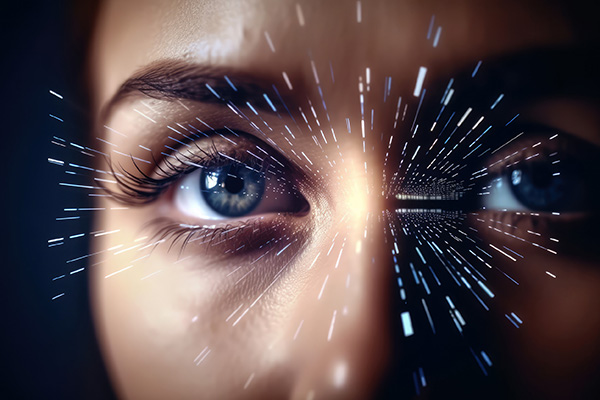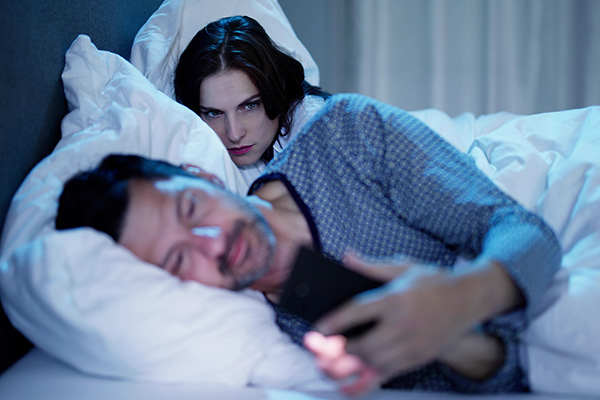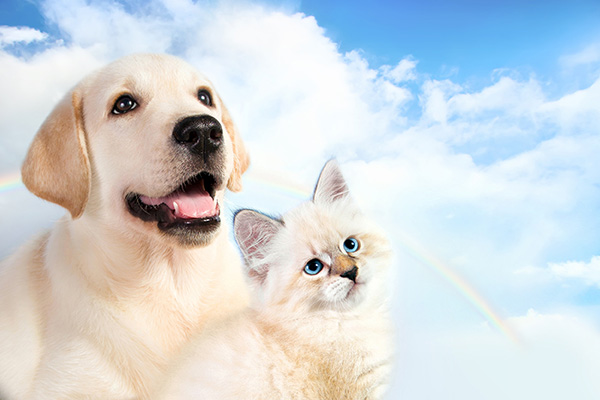Intuition
Learning To Trust Your Inner Truth
 Have you ever noticed that whenever you’re really enjoying what you’re doing, it’s as if there’s an amazing energy flow or undercurrent carrying you along?
Have you ever noticed that whenever you’re really enjoying what you’re doing, it’s as if there’s an amazing energy flow or undercurrent carrying you along?
In these magical moments it feels as if the universe itself is moving with you, effortlessly aligning circumstances, people, and opportunities in your favor.
Don’t you wish you could live like this all the time? Imagine a life where every decision you make feels right, where your inner compass is so attuned to your truth that you rarely second-guess yourself.
Unfortunately, we too often worry about what others might think of us, or we choose the practical path – the road most traveled. We fall into the trap of following the opinions of others instead of tuning in and listening to our own inner guidance.
The fear of rejection or failure too often looms large, keeping us tethered to a path that feel safe but uninspiring. We convince ourselves that following our soul’s calling is a luxury rather than a necessity.
Following your inner truth is not selfish. Following the flow of what is true for you also doesn’t mean you’re shirking your responsibilities. It simply means that you are choosing, moment by moment, what feels right for your soul.
Society bombards us daily with standards and our families with expectations of what’s right and acceptable, yet how often do we stop and do a self-check-in? How often do we ask ourselves, “Is this really what I want?” instead of “Is this what I’m supposed to want?”
The Sacred Invitation Of A Spring Renewal
 With the first delicate buds unfurling and the air perfumed with the invigorating scent of nature’s reawakening, Spring has officially arrived. This sacred season carries with it the powerful energies of change, whispering to us of transformation, renewal and new beginnings.
With the first delicate buds unfurling and the air perfumed with the invigorating scent of nature’s reawakening, Spring has officially arrived. This sacred season carries with it the powerful energies of change, whispering to us of transformation, renewal and new beginnings.
But as exhilarating as change can be, it often comes with uncertainty, excitement, and sometimes even fear. We find ourselves at a crossroads between the comfort of the known and the vast potential of what lies ahead.
During the winter months, we instinctively retreated inward — both physically, as we sought warmth from the cold, and spiritually, as we turned our awareness inward to reflect, heal, and dream. Without even realizing it, we entered the sacred cave of our inner wisdom and nurtured the seeds of our soul’s deepest desires.
Now, as the earth awakens and the air becomes warmer, so does the essence of our being, ready to give birth to something new and profound.
Although you may not fully understand what is unfolding within you, your soul is always aware. It has been preparing you for this moment, nurturing the visions and intentions that you have been quietly cultivating in the silence of winter.
Sometimes new beginnings manifest as external changes — a career change, a move to a new home, or new relationships. Other times they unfold as inner changes — an awakening of self-love, a renewed sense of purpose, or a deepened spiritual connection.
Overcome Fear, Doubt, And Anxiety With Psychic Insight
 Fear, doubt, and anxiety have become common emotional obstacles that many of us face in our daily lives. They can cripple our decision-making abilities, cloud our judgment, and prevent us from reaching our full potential.
Fear, doubt, and anxiety have become common emotional obstacles that many of us face in our daily lives. They can cripple our decision-making abilities, cloud our judgment, and prevent us from reaching our full potential.
Whether it’s fear of the unknown, doubt about our abilities, or anxiety about what the future holds, these emotions can be overwhelming. Psychic reading offers a unique approach to navigating and overcoming these challenges, and we are here to guide you every step of the way.
Fear, doubt, and anxiety are often rooted in past experiences, limiting beliefs, and an inability to see beyond the present moment. Fear can be a natural response to real threats, but in many cases it’s just a mindset that arises when we feel uncertain about something that hasn’t even happened yet.
Doubt often stems from a lack of confidence or trust in our choices. Anxiety, on the other hand, manifests as constant worry or unease, sometimes without a clear cause, and can interfere with daily life and well-being.
These emotions often create a cycle of negativity, where one awful feeling feeds into the next, leaving you trapped in a state of uncertainty. Fortunately, a psychic reading can provide the clarity and perspective needed to break free from this cycle.
Psychic reading is a powerful way to gain deeper insight into your emotions, thoughts, and life circumstances. Gifted psychics are able to access information that is often hidden from your own conscious awareness. Revealing this information can help you better understand the root causes of your fear, doubt, and anxiety, and provide guidance on how to release them. Continue reading
It’s Time To Take Better Care Of Your Self!
 Only you know when it’s time to step into your authentic self. Only you know when it’s time to break free from the constraints of a life that no longer serves you and start living the life you were meant to live.
Only you know when it’s time to step into your authentic self. Only you know when it’s time to break free from the constraints of a life that no longer serves you and start living the life you were meant to live.
If your daily routine feels like running on a hamster wheel – repetitive, exhausting and uninspiring – it is time to step off and embrace change.
Doing the same thing the same way will always produce the same results. But by making small changes, you can cultivate a life of balance, joy, and fulfillment.
We are often our own worst critics. That little voice in your head may be whispering, “I can’t do this. I’m not good enough. I don’t deserve happiness.” These negative thoughts act as invisible barriers holding you back from personal growth.
It’s time to clear the mental clutter and make room for self-love and self-confidence. Replacing negative self-talk with empowering affirmations will shift your perspective and help you align with your highest potential.
Let go of the idea that we can rewrite the past. The past is past, and you have the power to create a new, fulfilling present. Living in the moment allows you to fully experience life without the weight of regret or fear of the unknown.
Your thoughts create your reality. A positive outlook attracts positive experiences, while negativity creates more negativity. The words you use-both out loud and in your mind-hold energy and influence your emotions and interactions. Even simple word choices can change the tone of a conversation and affect outcomes. By consciously choosing optimism, you can improve your relationships, well-being, and overall happiness.
Signs Your Partner Might Be Cheating
 Is your partner cheating on you? Is your spouse having an affair? Should you believe their version of events? Is there a noticeable change in their behavior or routine? Do you sense a lack of trust or transparency in your relationship?
Is your partner cheating on you? Is your spouse having an affair? Should you believe their version of events? Is there a noticeable change in their behavior or routine? Do you sense a lack of trust or transparency in your relationship?
These types of suspicions can create a wall in relationships that is almost impossible to break down – especially if they turn out to be unfounded. When the fears are true, however, infidelity has the power to completely shatter trust and even destroy a family.
Over the years, I’ve done countless relationship readings for people from all walks of life, and one theme comes up again and again: infidelity.
In these readings, I have noticed certain patterns of behavior that consistently emerge when someone is hiding an affair. These signs aren’t just guesses or speculation-they are recurring clues that I’ve seen confirmed time and time again by the lived experience of my clients.
I don’t claim to have all the answers, but I’ve seen enough to know when something isn’t right. Whether it’s someone’s energy, their words, or the tears they shed when describing what they’ve noticed, these signs often speak louder than the lies people tell.
But knowing the truth is only part of the journey. Once you uncover it, you must be willing to act and not settle for disrespect or dishonesty.
If you’ve been feeling uncomfortable or insecure in your relationship, recognizing these signs early can help bring clarity to your situation and save you a lot of disappointment and heartache. Many of my clients who didn’t take it seriously at the time can vouch for this today.
A Spiritual Calling To Serve The Animals
 My psychic awakening began early, at the age of five. My first extrasensory experiences involved listening to animals and intuitively understanding their needs and concerns. Once I realized that I could communicate with the animals in this way, I began to listen more often to how I could help and support them.
My psychic awakening began early, at the age of five. My first extrasensory experiences involved listening to animals and intuitively understanding their needs and concerns. Once I realized that I could communicate with the animals in this way, I began to listen more often to how I could help and support them.
One day, I was playing outside when I sensed an animal calling to me for help. When I turned around, I saw a beagle at a neighbor’s house, shaking his head violently and whimpering. I could feel its distress.
As I approached, I immediately saw the cause of his discomfort. His ears were covered with parasites to the point that he was bleeding from repeated scratching.
Intuitively I instantly knew I had find an ointment, and with the simplicity of a child’s solution, I applied petroleum jelly to his ears. To my surprise and joy, it worked! Relieved, the beagle expressed immense gratitude, and tending to his ears became my daily mission.
My parents later adopted a retired German shepherd from the military. Because of his special training and many years of service, he was highly alert to things around him. His name was Argo, and I was told that he only understood formal commands, so it would be difficult for him to adjust to living as an ordinary “civilian” with our family.
Little did the adults know that I had my own way of talking to the animals. Soon I found myself sitting with Argo for hours, secretly communicating with him. He told me many amazing stories about his adventures as a military service dog. We became inseparable.
